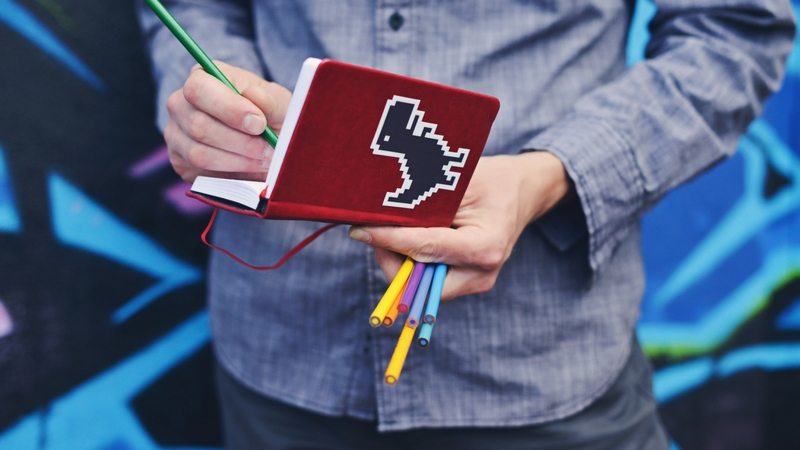Creativity vs. Imagination
Episode #8 of the course How to have breakthrough ideas by Eileen Purdy
Many people confuse creativity with imagination. They’re related and there is overlap, but they also have some distinct differences. Most importantly, however, is knowing that they aren’t “givens.” Just because you may be strong in one doesn’t mean you are strong in the other and vice versa. They both need to be cultivated in order to have breakthrough ideas.
What They Are
Creativity is the ability to use our knowledge in new ways. It’s when we connect dots in ways that haven’t been connected before to bring something new into physical existence. Creativity occurs when we produce something tangible.
Imagination, on the other hand, is the ability to produce non-tangible, mental representations (visual or auditory) of things that may or may not exist, or that may or may not have existed in the past. Imagination is the ability to form new images that are not present in the here and now.
Many times, we think of imagination just as daydreaming or fantasizing, but in fact, imagination is broader than this. We use imagination whenever we picture how our day is going to look, when we are recalling a memory, when we anticipate something we are going to do, or when we think of a story. Our imagination is also in use when we have anxiety or worry, as it conjures up pictures of worst-case scenarios or reasons to be fearful.
When We Struggle
When we struggle with the act of turning our ideas and imagination into something tangible, it’s usually a problem with our imagination. It’s not that we’ve forgotten how to be creative, it’s that the quality of our ideas have been affected by a disrupted or diminished imagination. And so we feel stuck.
There are two main culprits that disrupt and diminish our imagination.
1. The biggest one is when we lose our ability to suspend disbelief. We tighten our critical faculties and discount all that’s not real or possible. Basically, the only thoughts and ideas we allow to surface are the logical ones.
2. The second culprit is that we become stagnant in our lives. We already know that our life experiences fuel imagination, so when our imagination becomes stuck, it indicates we need to do new things! We need to actively seek out different life experiences.
How to Cultivate Imagination and Creativity
An effective exercise to strengthen imagination begins with strengthening your ability to visualize. We often take for granted our ability to bring up something in our mind, whether it’s a picture, smell, or sound. But although we are born with an ability for this, for most of us, it also takes practice and repetition to get really good at it.
When you close your eyes and try to picture a yummy dessert at your favorite restaurant, what do you see? Do you see just a black screen with light squiggles darting around? Or do you see (insert your yummy dessert here) in detail enough to make your mouth water? If you didn’t just experience your personal Pavlovian response to the dessert you saw in your imagination, don’t worry. You can increase your ability to visualize with this simple exercise.
Start by looking at an object in your house or office. It can be a piece of fruit, your computer, or anything you can look at for 30 seconds. After 30 seconds, close your eyes and try to see that object in as much detail as you can. If you have difficulty pulling up a picture onto the back of your closed eyes, then repeat this 30-second exercise throughout the day for a few days until you get better.
When the 30-second visualization of an object is easy for you, picture a whole scene depicting a favorite place you’ve been or picture one of your favorite memories. Repeat this step until this becomes easy. Lastly, picture something that doesn’t even exist or a place you’ve never seen. Continue this step at least one time each day.
Tomorrow, we talk about the benefits of failing fast and failing often. Yes, really.
Recommended book
Creative Confidence: Unleashing the Creative Potential Within Us All by Tom Kelley, David Kelley
Share with friends

